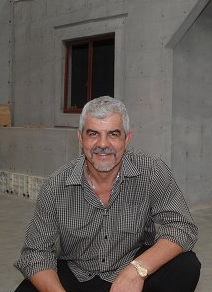“Innovation In Affordable Housing” – An Interview With Moladi’s Hennie Botes
No comments yetHennie Botes founded Moladi in 1986, after building a global business as an entrepreneur and inventor. His ability to think outside the box has led him to found a company that is revolutionizing the affordable housing market through design, innovation, and good-old fashioned ingenuity.
Can you tell us about how Moladi came about? How did you come up with the concept?
Let’s start at the beginning. As it happened, my first invention was a plastic baby bath that fit across the bathtub and gave young mothers an easy and safe way to bathe their newborn children. The design was sold the world over, and gave me the freedom to found Moladi.
Moladi was the result of my own difficulties with building with brick and mortar.
In South Africa, and many developing countries, we still suffer from a colonial mentality. Our education system does not teach us how to plant and grow food or build things. And that is a tragedy. Africa will have to uplift itself, and learn how to build things itself.
The challenge for so many local housing developments is the lack of skill. We know how difficult it was to put bricks on top of each other in a straight line, and, once the wall is built, to plaster it.
Moladi was a way I saw to build a construction system which could evolve into a job-creation tool itself, since it does not require skilled labor – in fact, over 90% of a construction team on a Moladi housing site consists of unskilled laborers.
My first attempts at building the right mold was not exactly a success but the geese on the farm got a dam as result. Gradually, and this the way with all innovation, you learn from your mistakes. The result was the Moladi building system.
Read more: http://www.greenleapreview.com/innovation-affordable-housing/
You May Also Like
Comments
Leave a Reply







